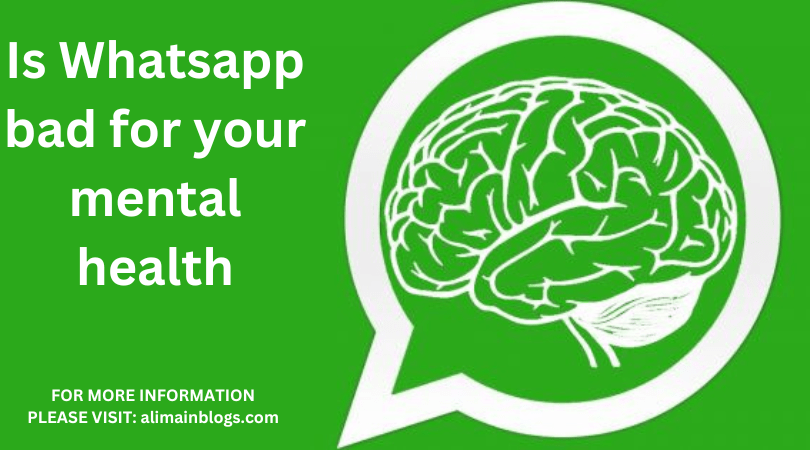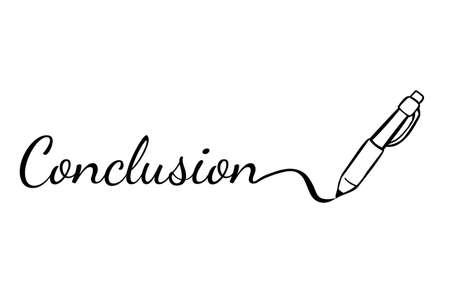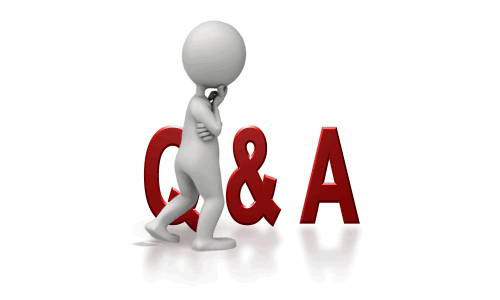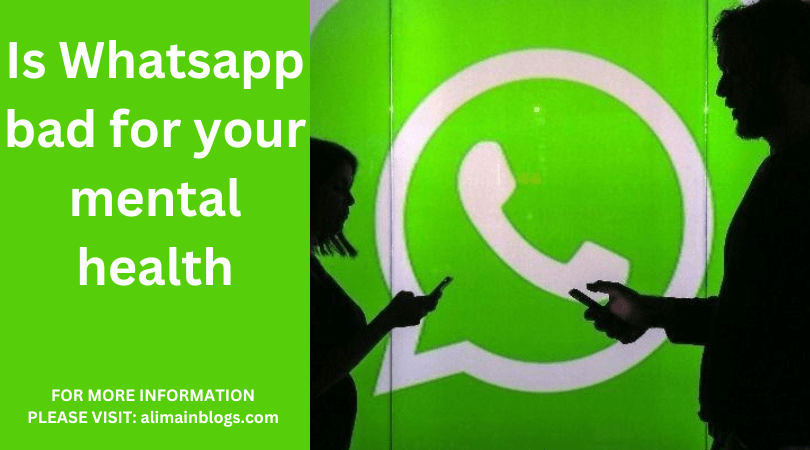Is Whatsapp bad for your mental health. In the age of instant communication, WhatsApp has emerged as a ubiquitous messaging platform connecting individuals across the globe. While its convenience in fostering communication is undeniable, the question looms: Is WhatsApp detrimental to our mental well-being? In this exploration, we delve into the potential psychological effects of the widely-used messaging app.
The Instant Gratification Dilemma:

WhatsApp’s hallmark is its instantaneous communication, allowing messages to be delivered in real-time. However, this immediacy may inadvertently contribute to a culture of instant gratification. Waiting for replies, especially in the era of read receipts, can foster anxiety and impatience, affecting mental well-being.
The Comparison Trap:
The status and last seen features on WhatsApp can inadvertently lead to social comparison. Observing the frequent online presence or activity of others may trigger feelings of inadequacy or isolation. Users may find themselves caught in a cycle of comparing their social lives to the seemingly more active or fulfilling lives of their contacts.
The Perils of Group Chats:
While group chats facilitate communication among friends, family, or colleagues, they can also be a source of stress. The constant stream of messages, notifications, and the pressure to actively participate can be overwhelming. Group dynamics may lead to conflicts or, in extreme cases, feelings of exclusion.
Digital Overload and Sleep Disruption:
The constant connectivity afforded by WhatsApp may contribute to digital overload. The expectation of being available 24/7 can disrupt sleep patterns, leading to fatigue and stress. The “always-on” culture may blur the boundaries between personal and professional life, contributing to burnout.
Privacy Concerns:
WhatsApp has faced scrutiny for its privacy policies, causing concerns among users. The awareness that messages and personal data are susceptible to surveillance may induce stress and impact the feeling of security. Fear of privacy invasion can have profound implications on mental health.
The Dopamine Effect:
The app’s design, with its frequent notifications and satisfying sound alerts, triggers the release of dopamine in the brain. While this provides a momentary sense of pleasure, it can also lead to addictive behaviors. Excessive use may contribute to decreased productivity and heightened stress levels.

While WhatsApp undoubtedly revolutionizes communication, its impact on mental health is a nuanced interplay of convenience and potential pitfalls. Recognizing the potential stressors associated with the app allows users to establish healthier digital habits. Striking a balance between connectivity and personal well-being is crucial in navigating the evolving landscape of modern communication. As with any tool, mindfulness in its use is key to ensuring that the benefits of WhatsApp enhance rather than compromise our mental health.

1. How can using WhatsApp potentially impact mental health?
Using WhatsApp or any other messaging platform can have both positive and negative effects on mental health. On the positive side, it allows for easy communication and connection with others. However, excessive use, constant notifications, or engaging in negative conversations can contribute to stress, anxiety, and feelings of being overwhelmed.
2. Does the constant connectivity on WhatsApp contribute to stress?
Yes, the constant connectivity on WhatsApp, particularly if one is always reachable and responsive, can contribute to stress. The expectation of immediate responses and the pressure to stay connected at all times may lead to feelings of being overwhelmed and a lack of personal time and space.
3. Can WhatsApp contribute to social comparison and feelings of inadequacy?
Yes, constant exposure to the lives of others through status updates, photos, and messages can lead to social comparison. This can result in feelings of inadequacy, as individuals may compare their own lives to the curated and often idealized versions presented by others on the platform.
4. How can group chats on WhatsApp impact mental health?
While group chats can be a great way to stay connected, they can also become overwhelming, especially if there’s a high volume of messages or if the content of the conversation is negative. Constant notifications from group chats may contribute to stress and a sense of being constantly “on.”
5. Is there a link between excessive WhatsApp use and sleep disturbances?
Excessive use of messaging apps, including WhatsApp, especially right before bedtime, can contribute to sleep disturbances. The blue light emitted by screens can interfere with the production of the sleep hormone melatonin, potentially leading to difficulties falling asleep.
6. Can cyberbullying on WhatsApp negatively impact mental health?
Yes, cyberbullying on WhatsApp can have severe consequences for mental health. Being a victim of online harassment or bullying can lead to anxiety, depression, and other mental health issues. It’s essential to address and report such behavior to create a safer online environment.
7. How can individuals maintain a healthy relationship with WhatsApp for better mental health?
To maintain a healthy relationship with WhatsApp:
- Set boundaries on your usage.
- Turn off unnecessary notifications.
- Take breaks from the app, especially during periods of high stress.
- Be mindful of the content you engage with.
- Establish clear communication expectations in group chats.
- Report and block any instances of harassment or bullying.
- Prioritize face-to-face interactions when possible.
===============
FOR MORE INFORMATION PLEASE VISIT: alimainblogs.com
